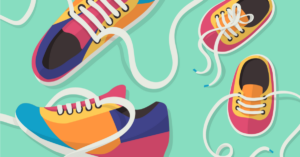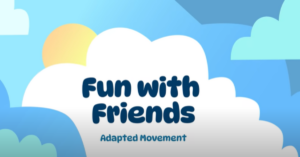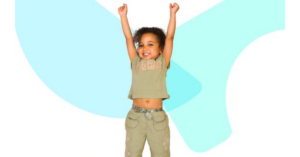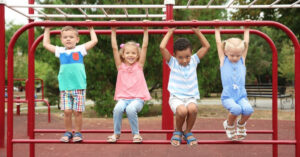Posts Tagged ‘physical activity’
Movement for Healthy Bodies
Physical skills and healthy bodies can be built through everyday activities and movement. As a caring grown-up in a child’s life, you can facilitate movement and learning, and our partners at Sesame Street are here to help. Their worksheet provides fun ideas to get kids moving. Remember, there’s always an opportunity to move!
Read MoreAdapted Movement
Disabilities can affect a person’s mobility, one or more of their senses, or their neurological development. However, this shouldn’t keep people with disabilities from being involved in games and activities. Our partners at Alliance for a Healthier Generation have tips on how to adapt movements to ensure young people with and without disabilities can play together and experience the benefits of being active.
Read MoreStretch, Breathe, Move!
Our bodies can teach us a lot about our feelings, and our bodies can also help us understand and manage our feelings. Our partners at Sesame Street in Communities have resources to help you encourage children to notice the “clues” their bodies give them about what they may be feeling (for instance, a stomachache may be a sign that they’re feeling worried). Then, show them how to use their bodies to help them manage their feelings.
Read MorePhysical Activity in Child Care Settings
In the face of chilly temperatures, engaging in outdoor activities may seem less inviting. Yet, the importance of maintaining an active lifestyle is vital. Our partners ICN highlight the importance of physical activity and provides a variety of opportunities for staying active, both indoors and outdoors, within the child care setting.
Read MoreECE Nutrition and Physical Activity Practices Decreased During Pandemic
A report published in the Journal of Public Health Management & Practice examined changes in nutrition and physical activity-related best practices in ECE settings in Illinois from 2019 as compared to 2022.
Read MoreKeep Active Together
Staying active as a family is important for every family member’s physical health, especially around the holidays. If you are a parent or caregiver, learn how to prioritize movement and foster play and physical activity year-round. Our partners at Alliance for a Healthier Generation have great resources with ways to keep active together!
Read More





